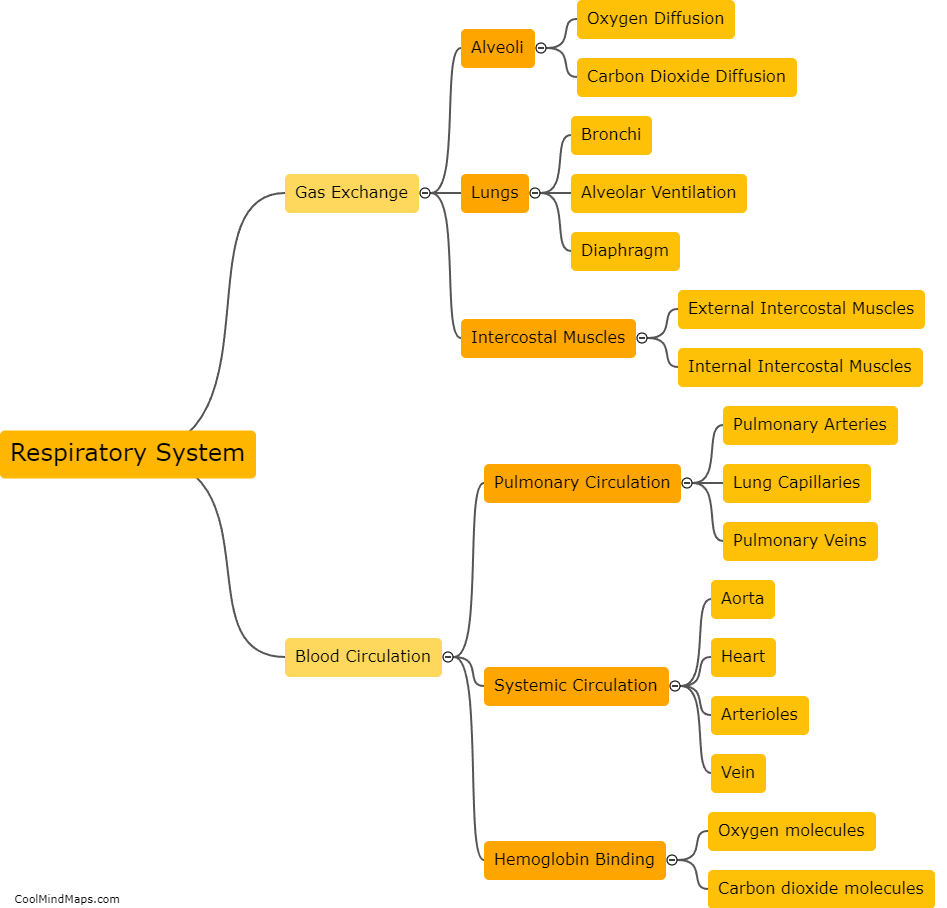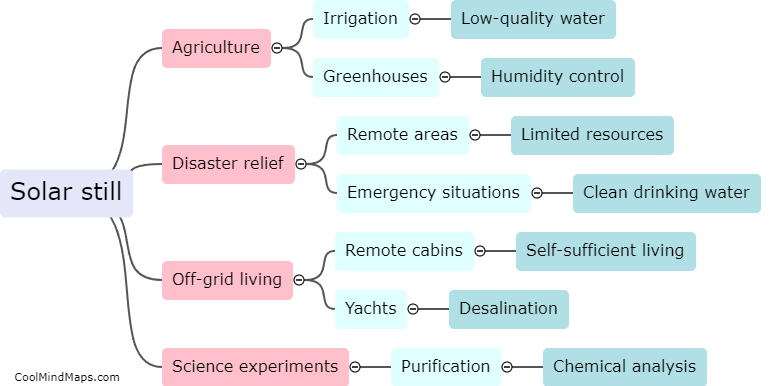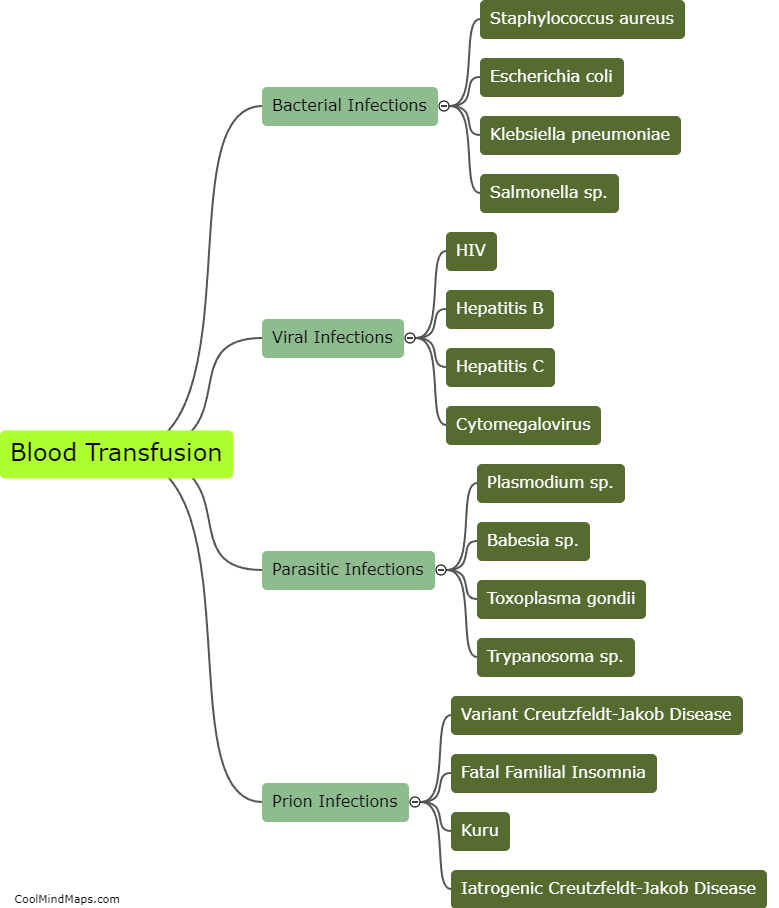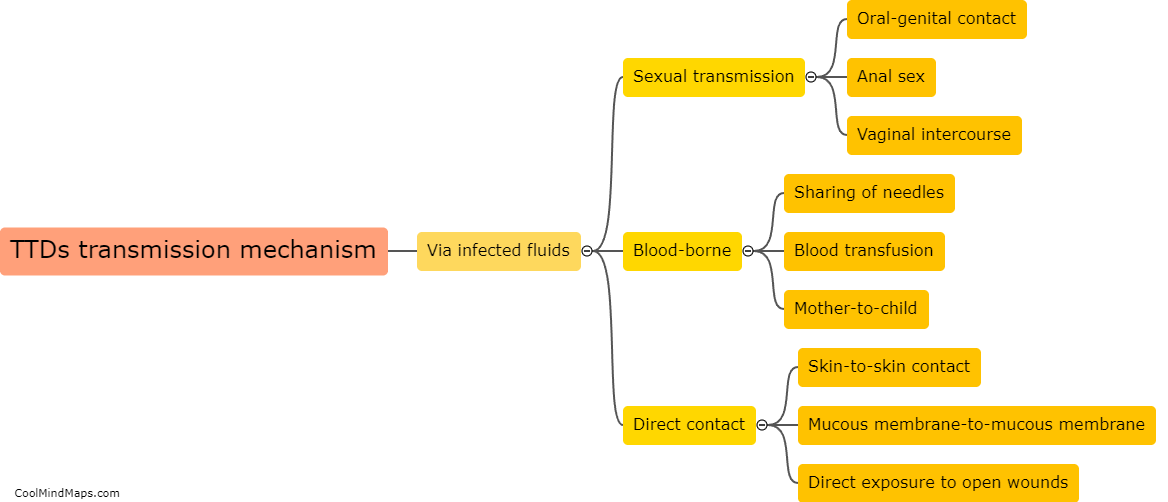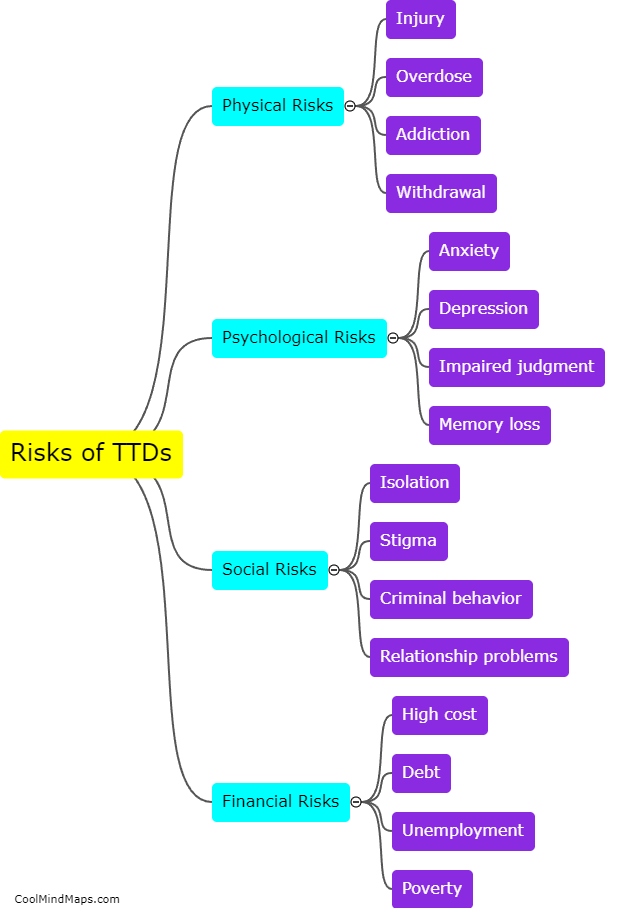What are transfusion-transmitted diseases (TTDs)?
Transfusion-transmitted diseases (TTDs) are infections that can spread through the transfusion of contaminated blood products or blood transfusions. These diseases are caused by infectious agents such as bacteria, viruses, and parasites, and they can be deadly if left untreated. Common TTDs include hepatitis B and C, HIV/AIDS, bacterial infections, and Zika virus. To prevent TTDs, blood donors are carefully screened for any signs of infection before their blood is used for transfusions. Additionally, advanced screening methods and testing for bloodborne infections are constantly being developed and improved to enhance transfusion safety.
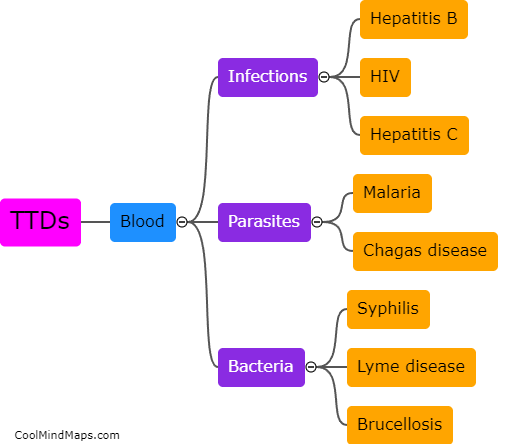
This mind map was published on 25 June 2023 and has been viewed 117 times.
